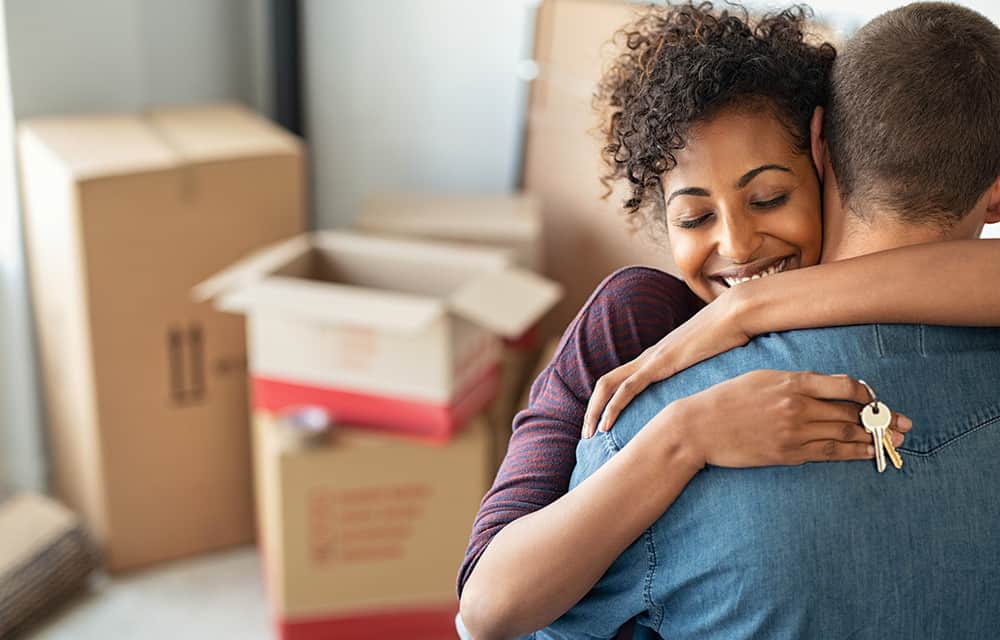If you’re a first-time buyer, the stages of buying a house can seem a little confusing. So, to help you navigate the home-buying process, here’s a rundown of what you can expect.
[top_pitch]
Buying a house: a timeline of the stages
While there’s no hard and fast rule, it usually takes around six months to buy a house in the UK. Here’s why:
Should you invest £1,000 in BP right now?
When investing expert Mark Rogers has a stock tip, it can pay to listen. After all, the flagship Motley Fool Share Advisor newsletter he has run for nearly a decade has provided thousands of paying members with top stock recommendations from the UK and US markets. And right now, Mark thinks there are 6 standout stocks that investors should consider buying. Want to see if BP made the list?
- Browsing properties and making an offer: 10 weeks, on average
- Property searches: one month
- Getting a mortgage: up to six weeks
- Exchanging contracts: up to two months
- Finalising the sale: anything from 24 hours to one month
Let’s work through the key steps.
1. Get your deposit together
The first stage of buying a house is saving up a deposit – usually at least 5% of the home purchase price. So, if you’re buying a property worth £200,000, you need a deposit of at least £10,000.
If you want a smaller mortgage, though, aim to save a deposit of at least 10-15%.
2. Shop around for a mortgage
Next, find out how much you can borrow. How much you’ll get depends on factors like your age, credit score and income.
- Shop around for the best deals.
- Once you’ve found a mortgage you’re happy with, you can agree it ‘in principle’ with your lender. In other words, you know the lender will probably give you the mortgage, but you won’t take it out until you’ve found a property you want to buy.
3. Start viewing properties
Now comes the fun part – viewing properties! You can register with local estate agents or browse websites like Rightmove to find properties you want to view.
4. Find a lawyer or conveyancer
Conveyancing is basically the legal process of transferring property ownership from one person to another. This is not a stage of buying a house you can handle alone. You’ll need a trained conveyancer or solicitor to do it for you.
Once you know you plan on making an offer, instruct someone to represent you.
5. Make an offer
You don’t always need to offer the full asking price. However, if there’s more than one buyer interested, you may have limited room to negotiate.
It’s best to have representation in place before you make an offer. They’ll help you put the offer in, and they’ll talk you through what happens next.
6. Get a property survey
Next up is the survey stage:
- Your lender will arrange a valuation to confirm the property’s worth the loan amount.
- It’s optional, but it’s a good idea to instruct your own property survey to look for any defects that could affect the sale price.
Lenders don’t always charge you for the valuation, but you’ll need to pay for a property survey.
[middle_pitch]
7. Confirm your mortgage
Once you’ve confirmed what you’re paying for the property, and you’re happy with the lender’s valuation, you can go back and agree the mortgage. If you experience any delays, make sure the seller knows what’s happening.
Until you exchange contracts, you can still pull out of the sale without penalty.
8. Look for removal companies
This is an important stage of buying a house. Book a removal company as early as possible – don’t leave it until the last minute!
- Shop around for the best rates.
- Always carry your own valuables (e.g. jewellery) to a new property.
9. Exchange contracts
Exchanging contracts means signing the contract with the seller and sending over the deposit.
It’s really important from a legal perspective. Once there’s a signed contract in place, you can’t pull out of the sale without incurring penalties for breach of contract.
10. Insure your new home
Once you’ve exchanged contracts, get home insurance in place. Remember, you’re legally bound to buy the property now, so it’s in your best interests to protect it!
If it’s a new build, you can arrange for cover to begin on the completion date (i.e. moving day).
11. Set up utilities
Make sure you set up utilities like broadband, gas and electricity before you move in. You can arrange for the services to start on moving day.
12. Change your address
Don’t forget to update your address details! Here’s a non-exhaustive list of whom to notify:
- Lenders, including credit card companies
- Doctors and dentists
- Schools
- Employers
- Banks or building societies
13. Complete and pay remaining fees
The final stage of buying a house is when you pay the remaining purchase price to the seller. Once this is done, you’ll get the keys to the new property and the sale is complete.
The stages of buying a house: takeaway
Buying a house can be stressful, but it’s a lot less daunting if you know what to expect. Be clear about how much you can borrow, and get representation in place as soon as possible.
One final tip: don’t forget to factor in expenses like stamp duty, removal costs and legal fees. Otherwise, you could end up spending more than you can afford.







